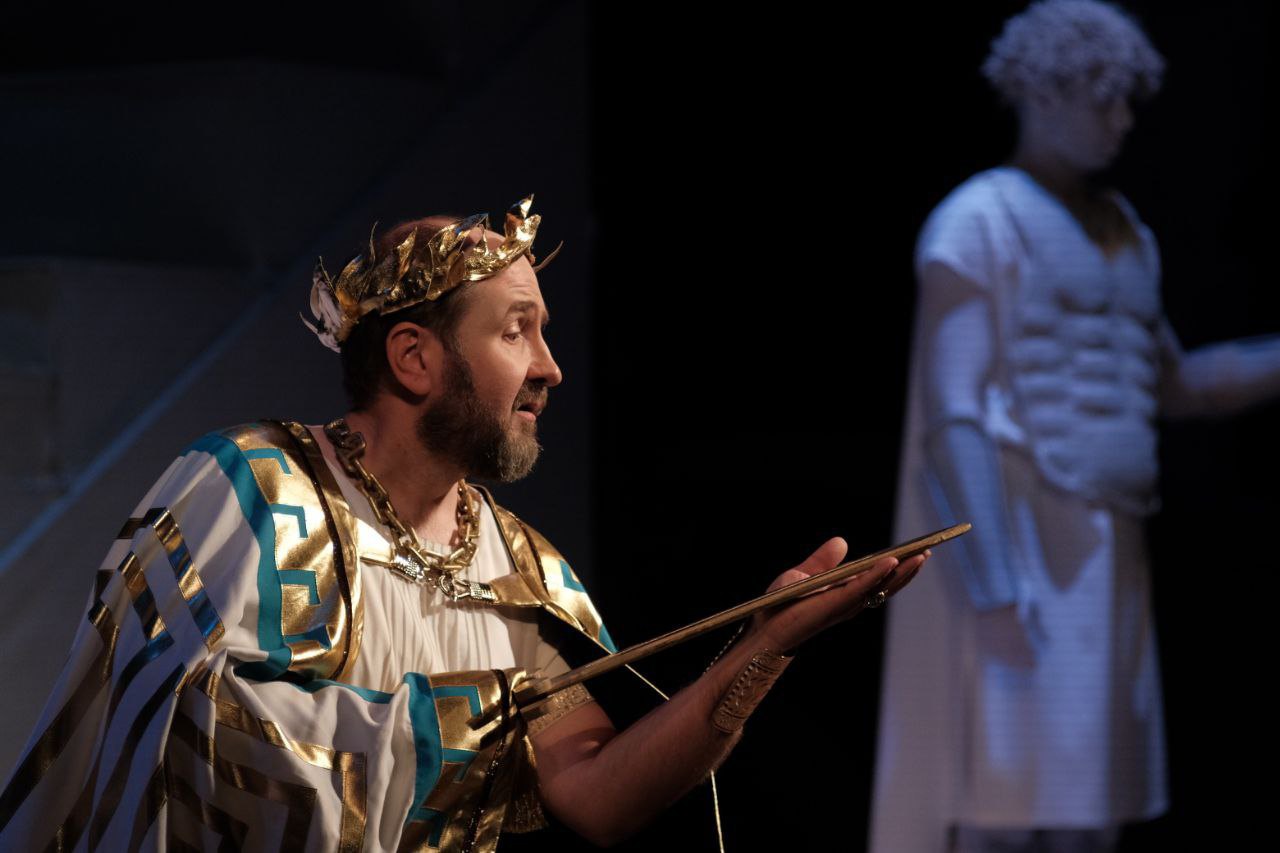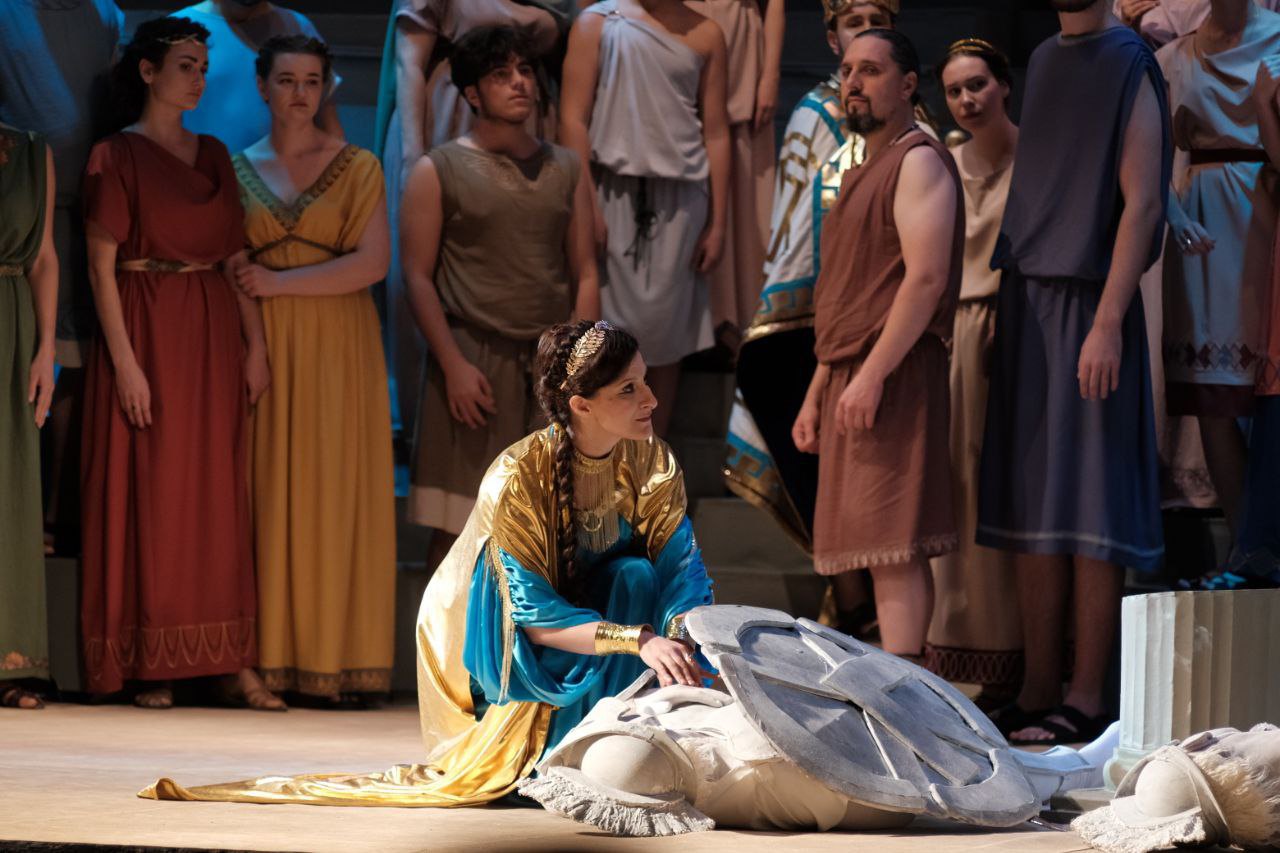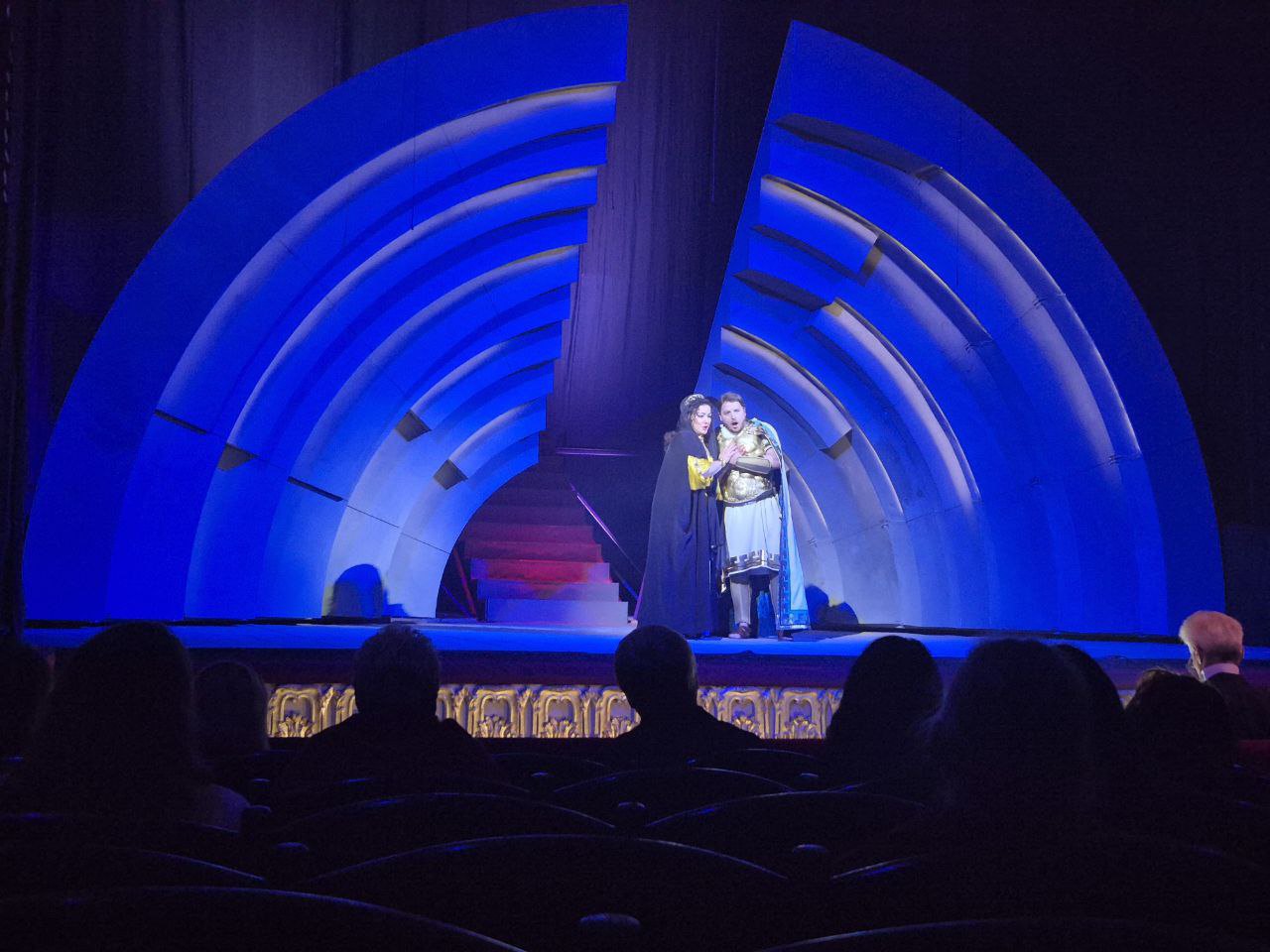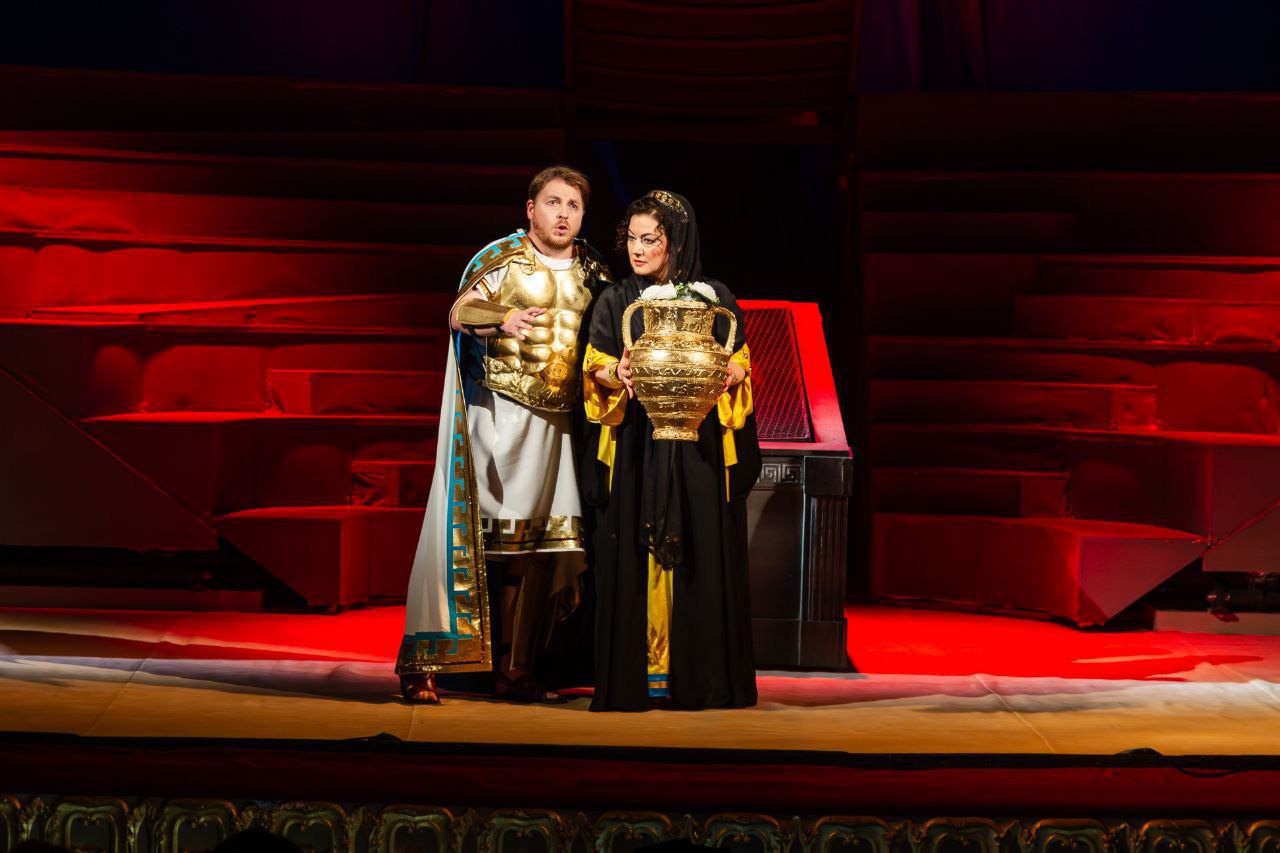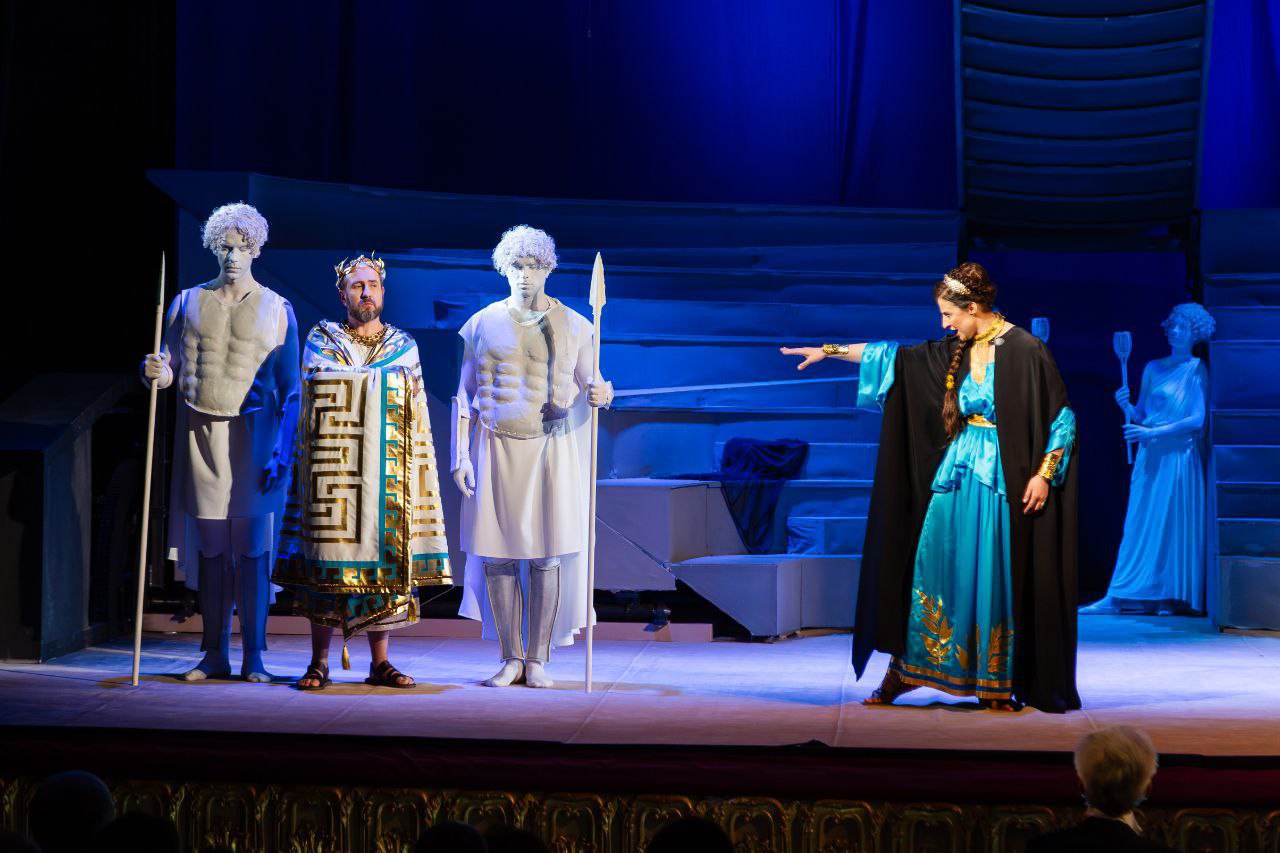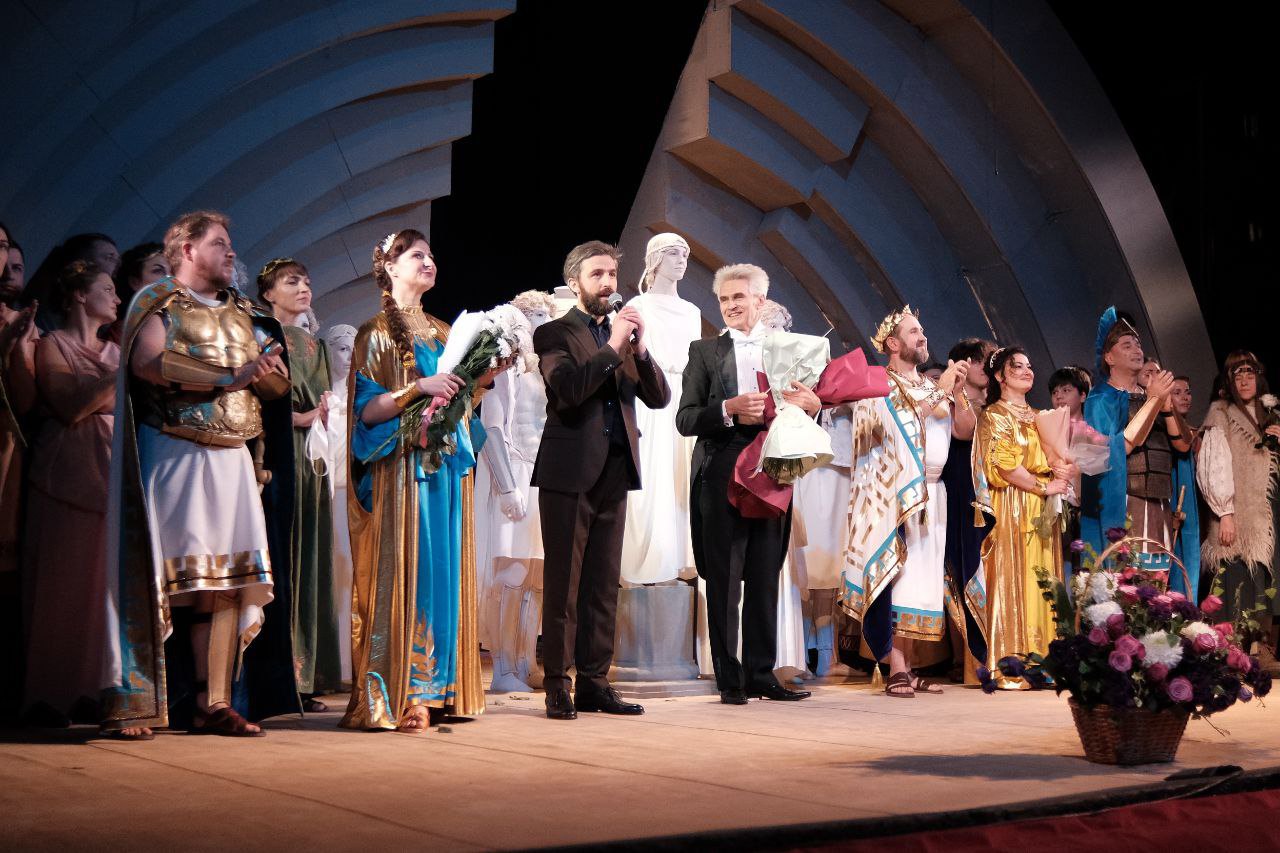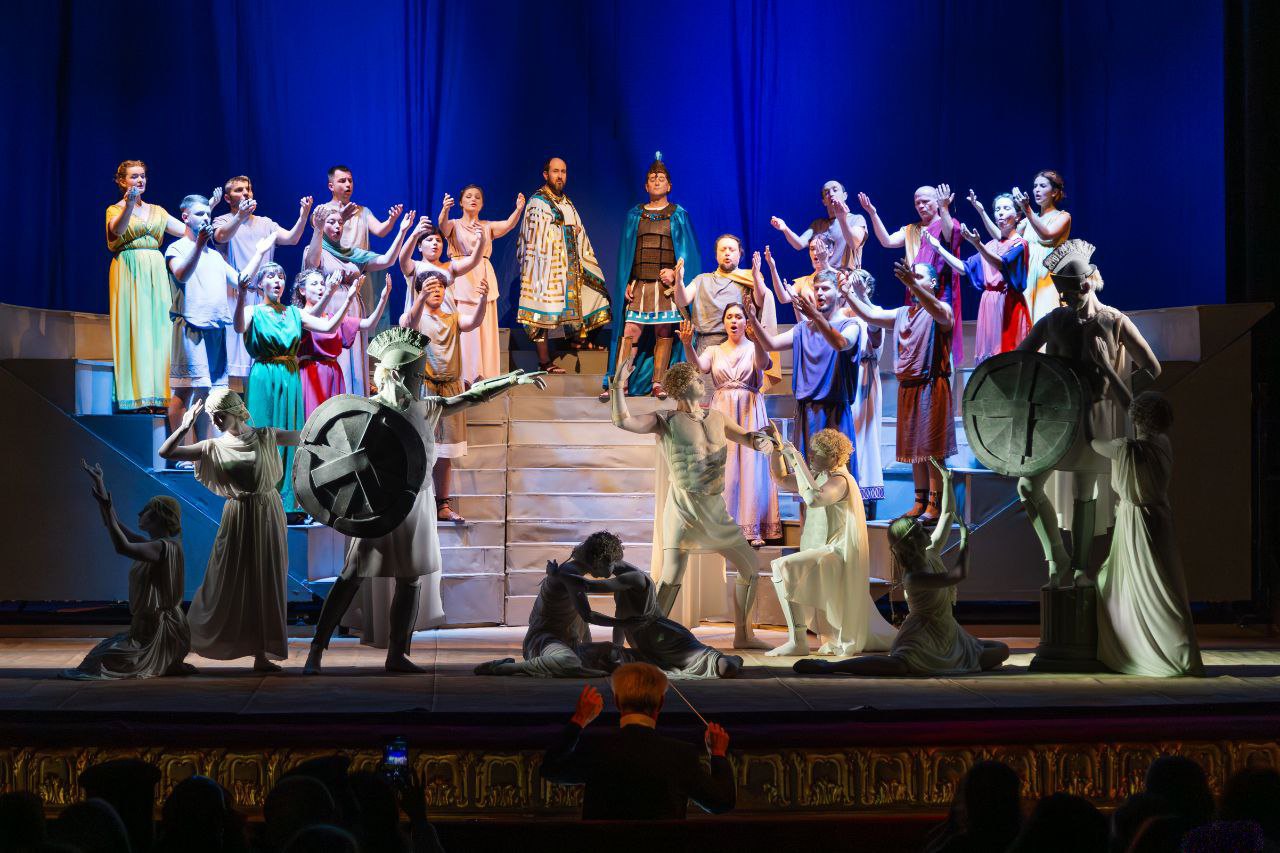
This is truly an extraordinary event, as the opera Creonte has not been staged for 250 years — after its premiere in 1776 at the San Benedetto Theatre and its first season in Venice, the opera's sheet music was considered lost.
However, in 2023, the score of Bortnyanskyy’s opera Creonte was discovered in the archives of the Ajuda. Library in Lisbon, Portugal, by Dr Olha Shumilina, Professor at the Lviv National Academy of Arts, who brought a copy of the manuscript to Ukraine.
For nearly a year, research and digitisation of the musical material were carried out as part of the project “Returning the World the First Opera by Dmytro Bortnyanskyy, Creonte, initiated by Herman Makarenko, conductor at the Taras Shevchenko National Opera and Ballet Theatre of Ukraine and UNESCO Artist for Peace.
The first performance of Creonte in concert form took place in Kyiv on 11 November 2024.
Yet conductor Herman Makarenko aspired to stage a full-scale theatrical production.
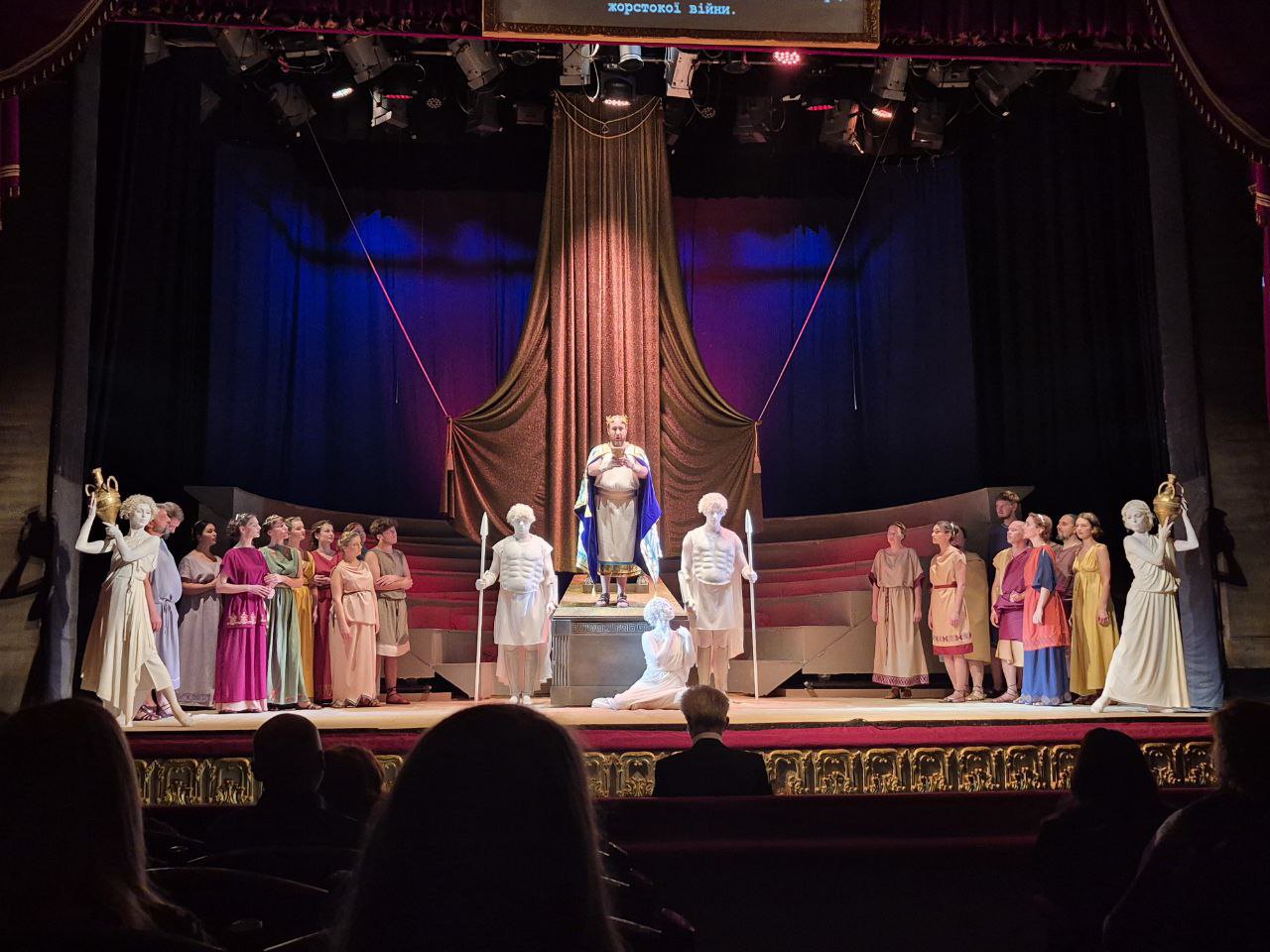
According to the project’s creators, Bortnyanskyy's opera Creonte, like Mozart’s operas composed around the same period, required a theatre with specific acoustic conditions and a stage of particular proportions. Therefore, the revival of the opera had to take place in an environment close to its original musical and acoustic character, typical of the late Baroque – early Classical period.
One of the project’s patrons, Professor Mykola Prodanchuk, founder of the Bukovynyans’ Association in Kyiv, said at the premiere that the Chernivtsi Drama Theatre, built 120 years ago, is the only Baroque-style theatre in Ukraine in terms of its interior architecture and acoustics. A historical study was carried out, during which the original architectural drawings and sketches of the San Benedetto Theatre — the venue of the Creonte premiere in 1776 — were found. It turned out that the interior architecture of the Chernivtsi Drama Theatre is identical.
Therefore, in May 2025, it was decided to stage the opera precisely there — with the support of the Chernivtsi Regional Council, the Regional Military Administration and the City Council, as well as patrons from Kyiv and Chernivtsi. According to Prodanchuk, the implementation of such a project by the communities of Bukovyna and the city of Chernivtsi is unprecedented in Ukraine.
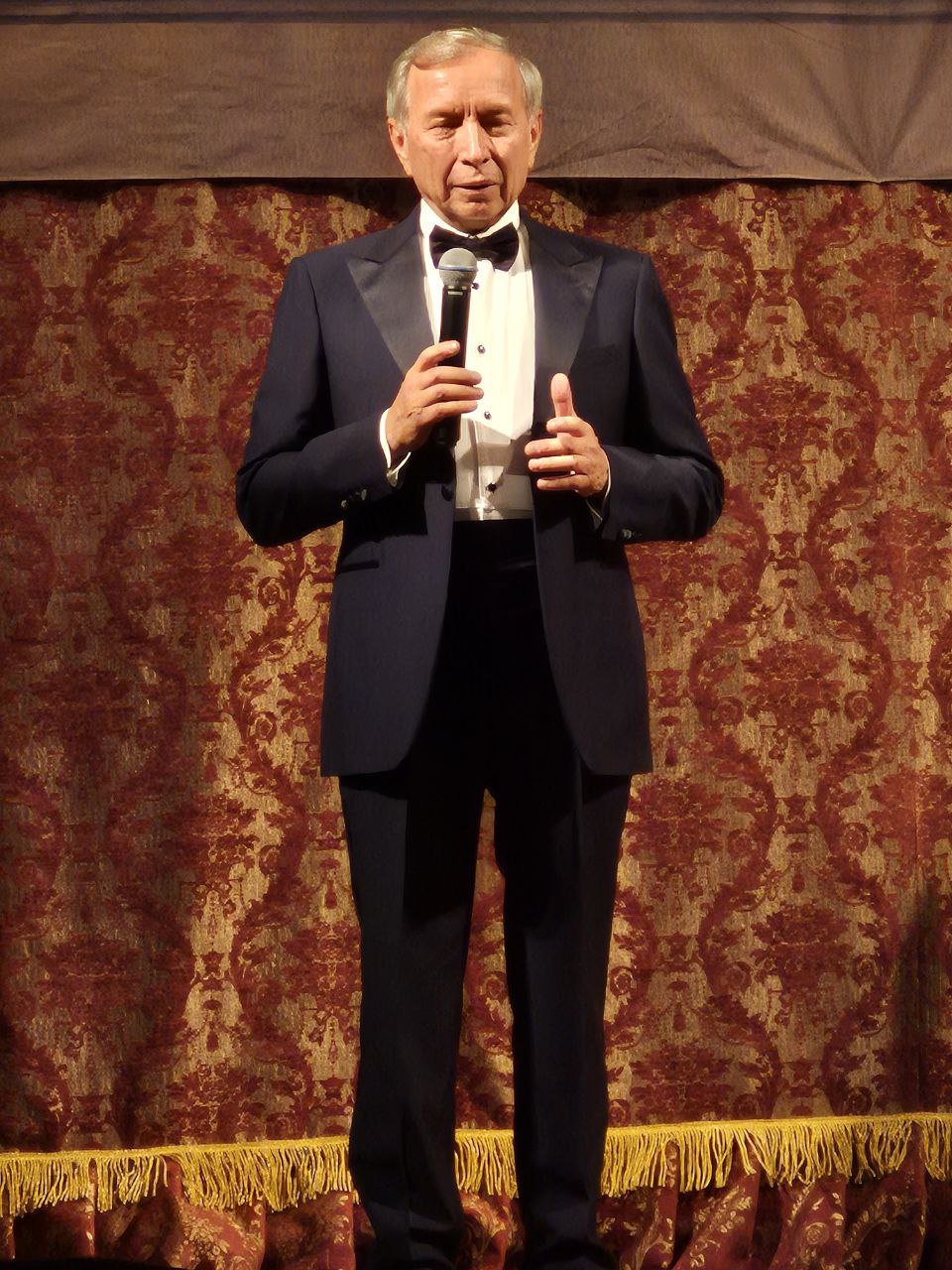
“What is also unique is that this production was granted official patronage by the United Nations Educational, Scientific and Cultural Organisation (UNESCO). They have no precedent for communities staging an opera during wartime,” said Prodanchuk.
“By granting its patronage, UNESCO recognised that the opera by Ukrainian composer Dmytro Bortnyanskyy is a treasure of global significance. This is important. We are reclaiming our history and returning to world culture as a nation that not only fights for independence and sovereignty but is also a highly educated and cultured nation.”
Theatre director and stage director of the opera, Ivan Butnyak, opened the premiere by expressing gratitude “to those residents of Chernivtsi and Bukovyna who built this temple of art 120 years ago. I would also like to thank today’s residents of Chernivtsi, guests and benefactors for your support — for filling this theatre with meaning.”
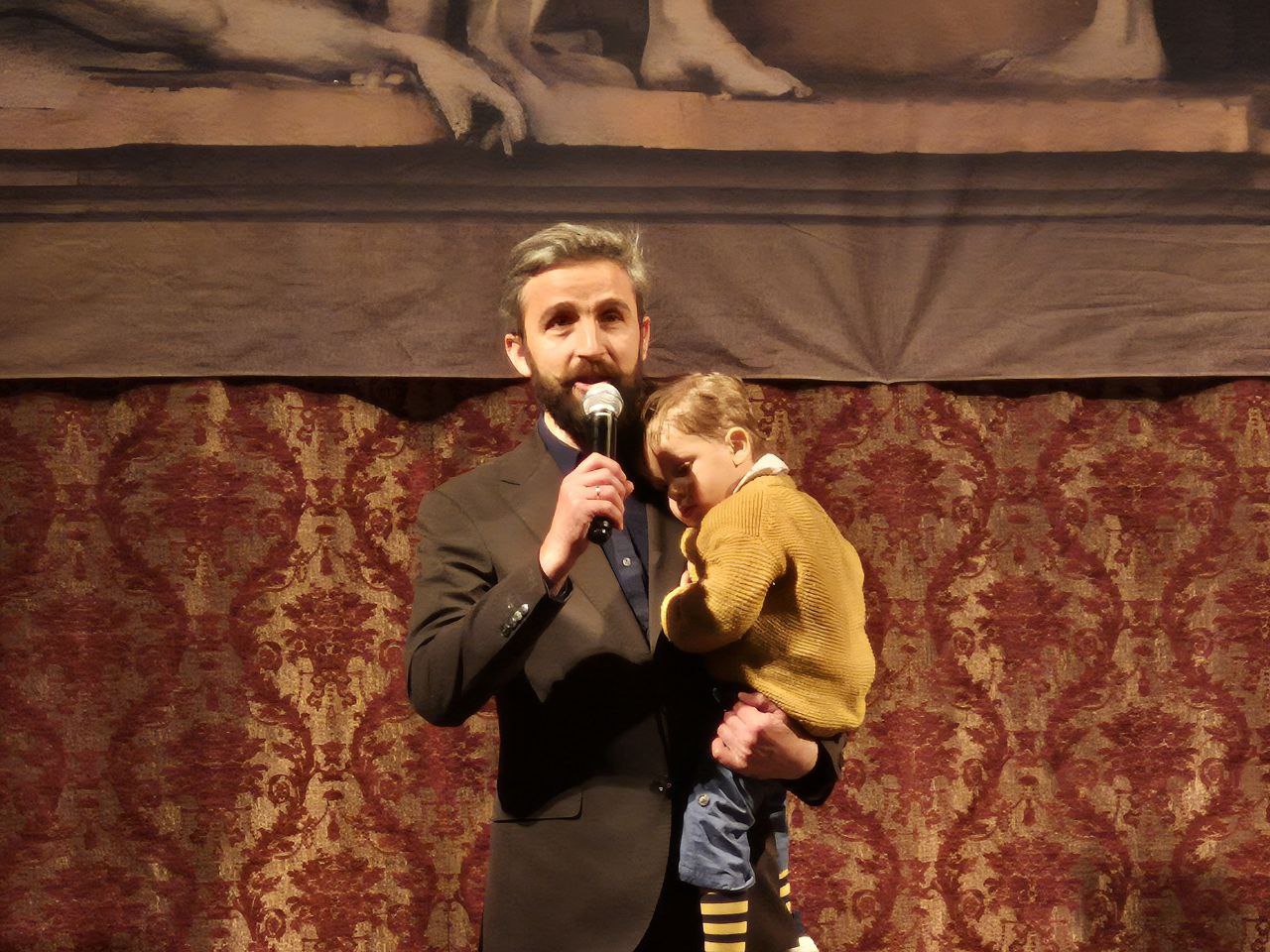
Ivan Butnyak asked everyone present to honour the memory of the chief conductor of the Chernivtsi Academic Regional Ukrainian Music and Drama Theatre, maestro Volodymyr Shnaider, who suddenly deceased on 1 October. He was 39 years old.
"He was with us preparing today's premiere, and we dedicate this event to the memory of Volodymyr Shnaider," said the director of the Drama Theatre.
Then the performance began, featuring:
- Creonte – Serhiy Bortnyk (Kyiv),
- Antigone – Honoured Artist of Ukraine Olha Fomichova (Kyiv),
- Emon – Honoured Artist of Ukraine Volodymyr Fisyuk (Chernivtsi),
- Ismene – Marharyta Bilokiz (Kyiv),
- Adrastus – Honoured Artist of Ukraine Vasyl Ponayda (Lviv).
Also featuring actors from the Olha Kobylyanska Music and Drama Theatre, the Chernivtsi Academic Chamber Choir, and the National Presidential Orchestra.
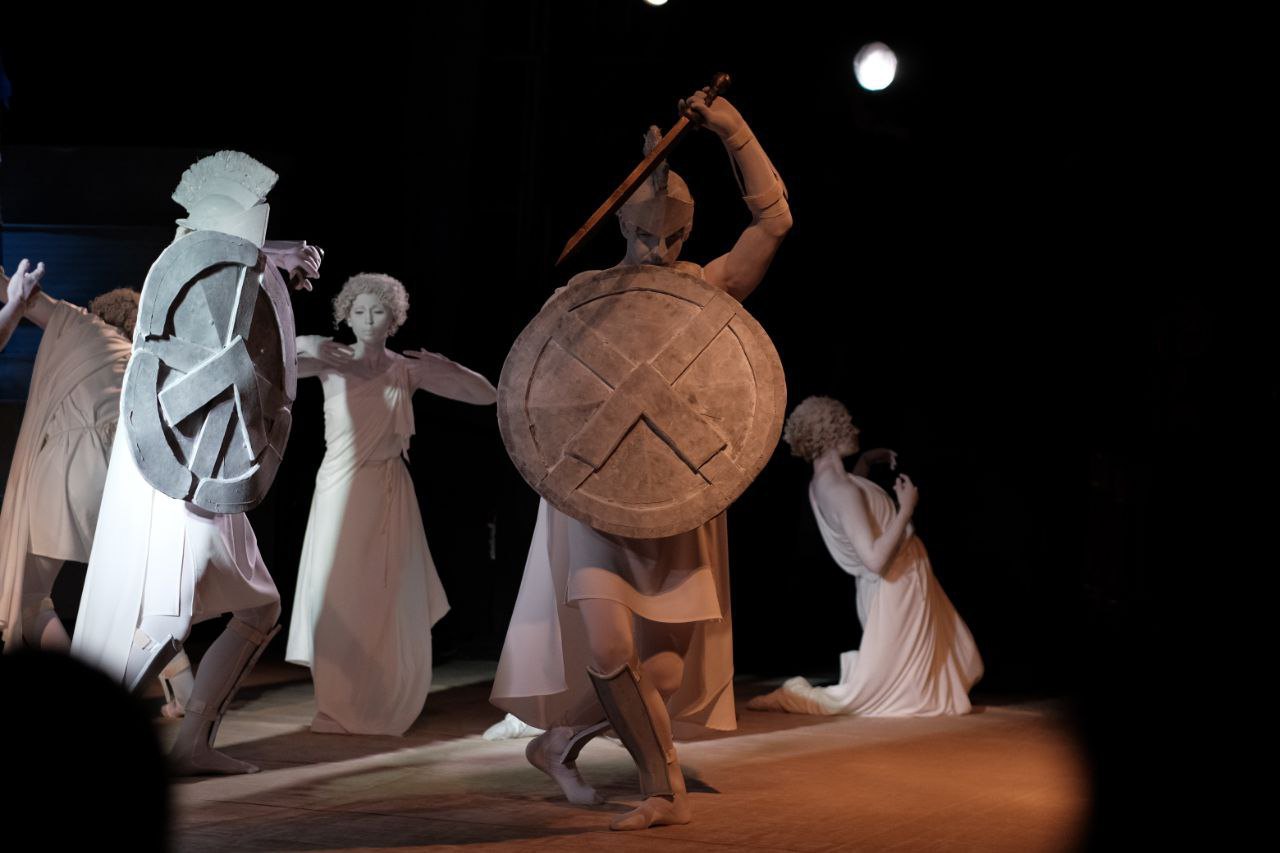
It is important to note that the Chernivtsi City Council organised a broadcast of the performance on a large screen in the theatre square, so that anyone who wanted to could watch it.
A full auditorium, interesting scenery, lighting, and an extraordinary performance of complex arias all created that special atmosphere that we go to the theatre for. But at the very beginning of the second act, an alarm sounded. Antigone finished her aria, the curtain fell, and the audience was asked to take shelter.
After the alarm ended, the performance resumed.
It seemed that Olha Fomichova began singing from the same note at which she had been interrupted.
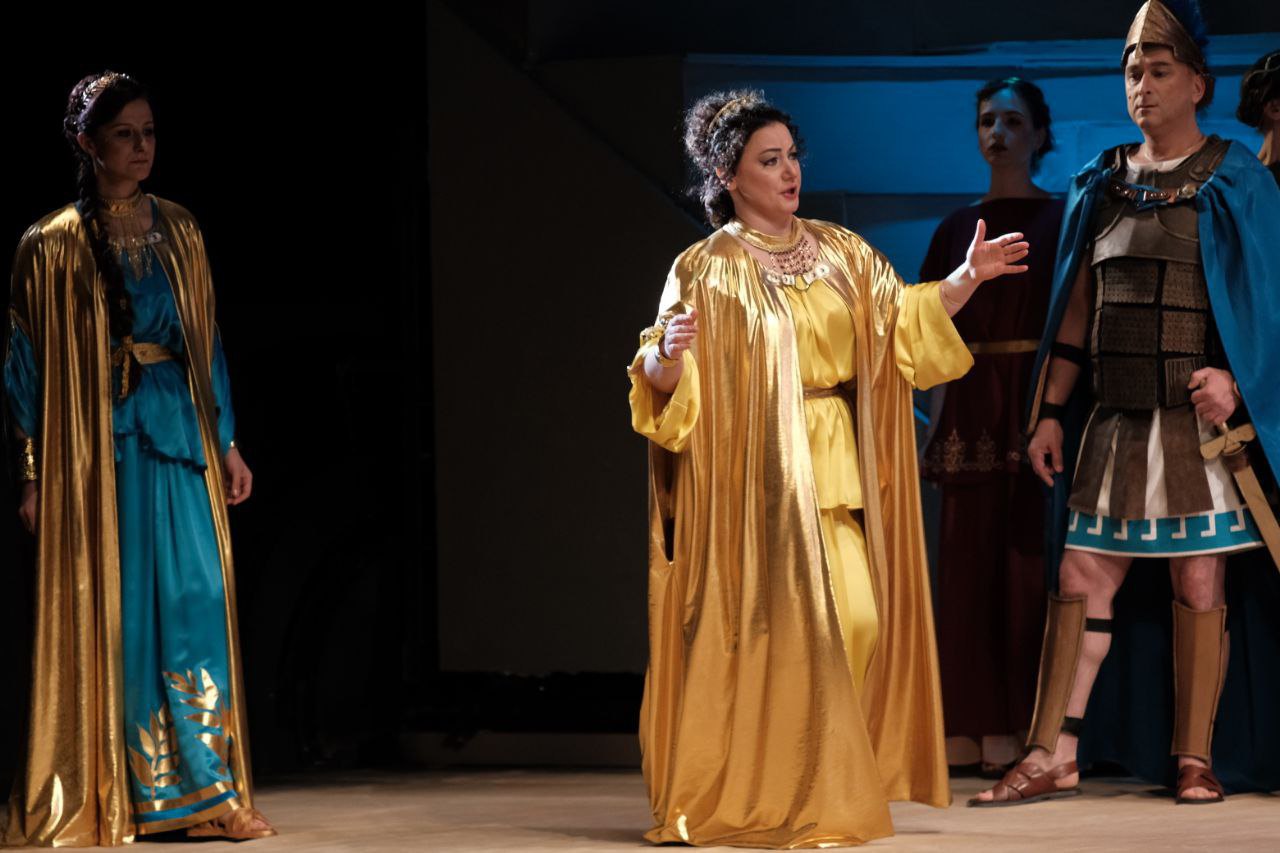
"What were you thinking when the alarm started? It must be difficult to work in such conditions, right? Did you decide where to pause?" we asked the conductor after the performance.
"We're used to working like this," said Fomichova. "As for the pauses... You see, this isn't La Traviata or Carmen, which everyone knows. No one here knows where to pause — it's the first performance. And you think first and foremost about not missing a single note. Notes learned, notes learned at night. We rehearsed everything, even at the last minute."
According to the artist, all the performers gathered in Chernivtsi just two weeks before the premiere. For such a short rehearsal period, they achieved incredible results.
After the premiere, LB.UA spoke with the conductor and director of the opera Creonte, Herman Makarenko.
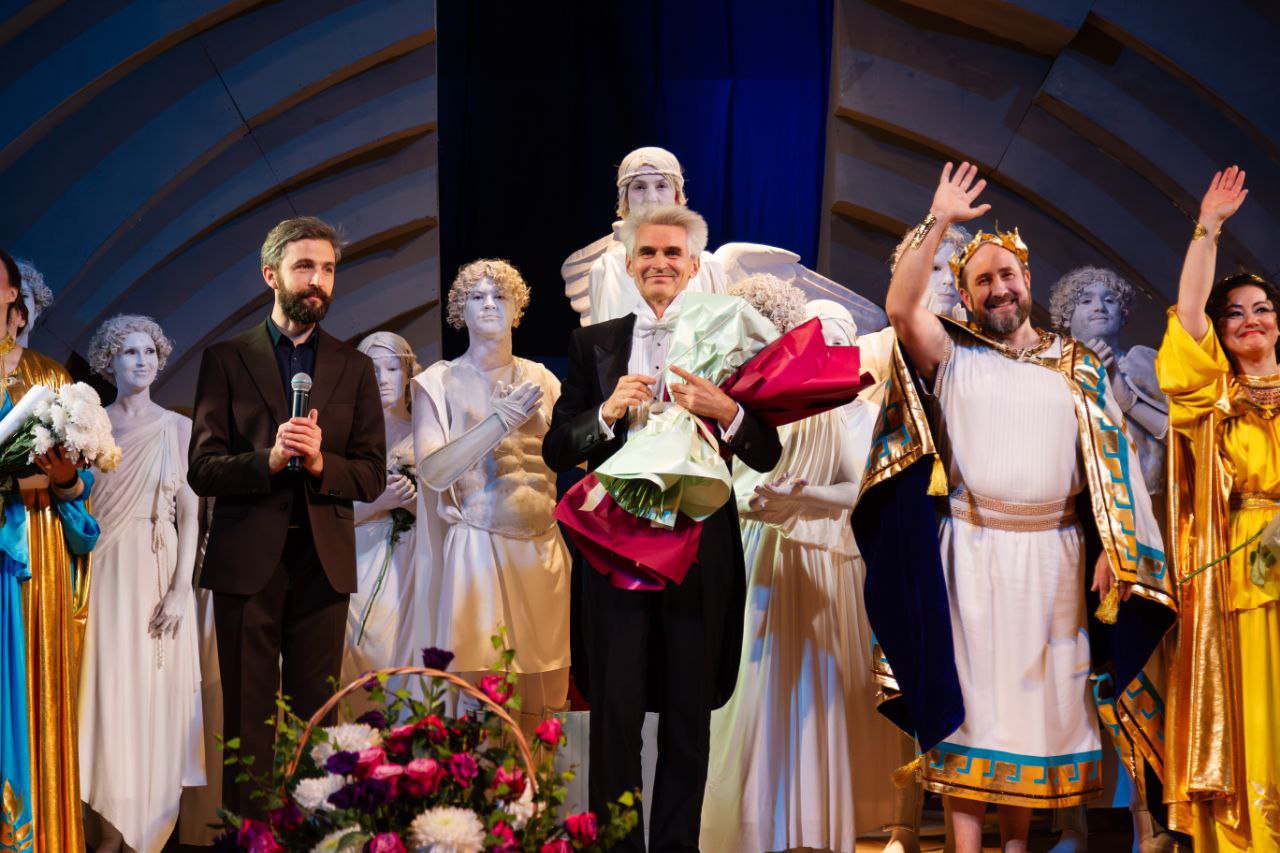
In response to questions about his impressions of the premiere and the significance of this event for the world, Herman Makarenko noted:
"First of all, I would like to congratulate myself and all the participants in the production: the orchestra, choir, mimes, technical services — all representatives of the Chernivtsi Theatre, the Chernivtsi community, all of Ukraine and all of humanity in general on the fact that, after 250 years, we have managed to return a masterpiece to the world — the first opera by Ukrainian composer Dmytro Bortnyanskyy. It is truly a masterpiece.
It is music that is colourful and multifaceted, leaving no one indifferent; it captivates. And most importantly, it features a young 25-year-old Ukrainian, a Ukrainian composer.
@lb.ua У Чернівецькому драмтеатрі імені Ольги Кобилянської 3 жовтня 2025 року відбулася прем'єра опери українського барокового композитора Дмитра Бортнянського. Партитура цієї опери вважалася втраченою 250 років. #Креонт #бортнянський #чернівецькийдрамтеатр ♬ оригінальний звук - 🔹Лівий берег - LB.ua🔹
It is remarkable how, in that style — early classicism — he was able to reveal the dramatic development of all the characters through music. It is unique, it is remarkable. Moreover, his music already contains a nod to the next global style — romanticism.
And in several numbers, you can just feel it — a nod to Romanticism almost 50-70 years before the birth of this style.
It is very important for the global opera community that we have revived an 18th-century masterpiece that was considered lost to humanity for almost 250 years. But the opera Creonte also carries an important civic message.
A young Ukrainian from the capital of the Hetmanate, Hlukhiv, changes the title from Antigone to Creonte, changes the libretto, emphasising the issues of tyranny and dictatorship, and ends the opera with the people changing the government.
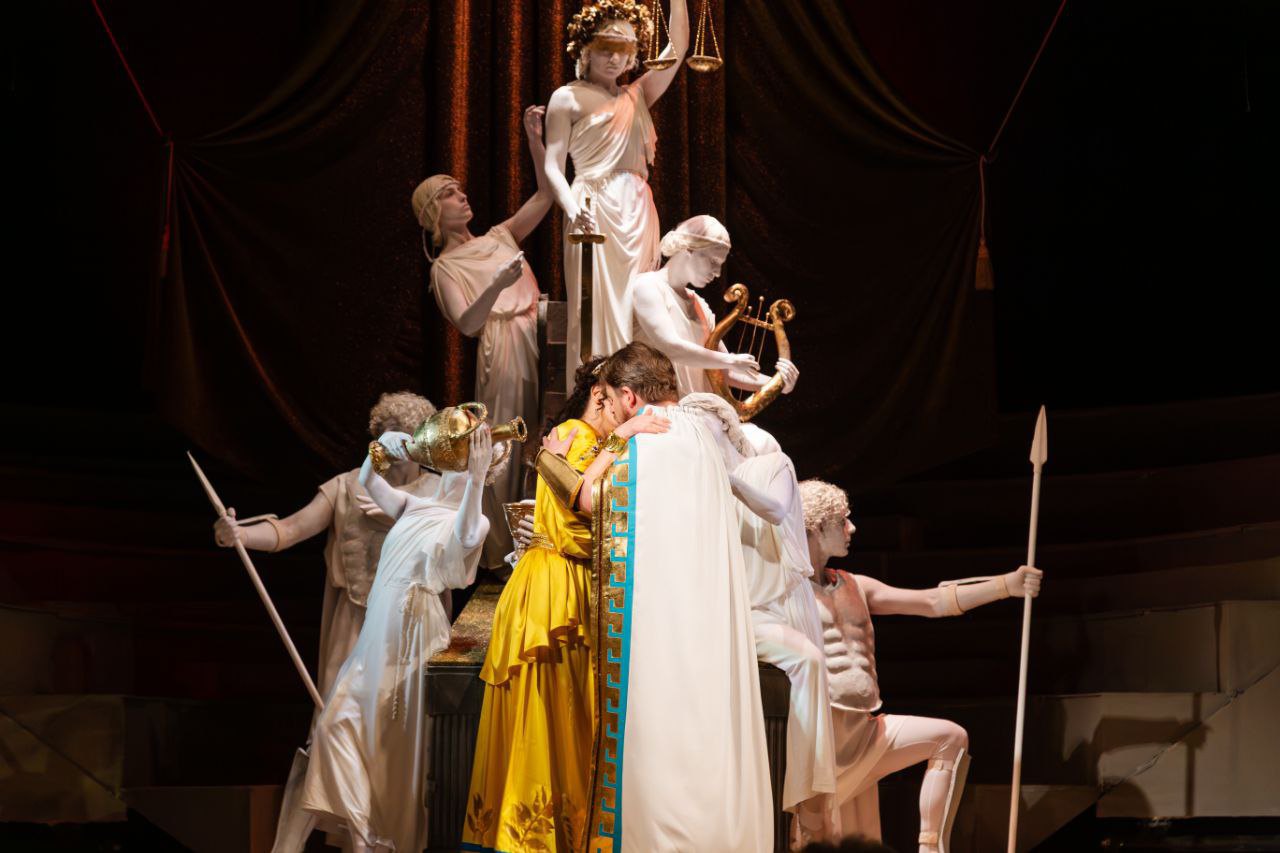
Only he could do it, and only in the free city of Venice could it be staged.
And the third point, which is very important, is that we, Ukrainians, have revived this opera. And in doing so, we have once again declared that Bortnyanskyy is a Ukrainian composer.
It is important that we revived this opera at a time when a full-scale war is going on, because our glorious Armed Forces of Ukraine are also defending what makes us a nation — our culture. We have thus shown that Ukraine is a nation with a glorious and very ancient culture.
@lb.ua Антігона та Емон. Прем'єра опери українського барокового композитора Дмитра Бортнянського "Креонт" у Чернівецькому драмтеатрі. 3 жовтня 2025 року. #чернівецькийдрамтеатр #бортнянський #Креонт #ОльгаФомічева ♬ оригінальний звук - 🔹Лівий берег - LB.ua🔹
The whole world knows our folk melody Shchedryk, which was created at least 2,000 years ago, and some musicologists believe that it is 4-5 thousand years old, based on the simplicity of the melody. And now the world will learn that Creonte represents 250 years of professional musical culture in Ukraine.
This is very important in order to show who we are, what our culture is, and to make a truly significant contribution to the musical and theatrical treasury, in particular, to the art of opera."
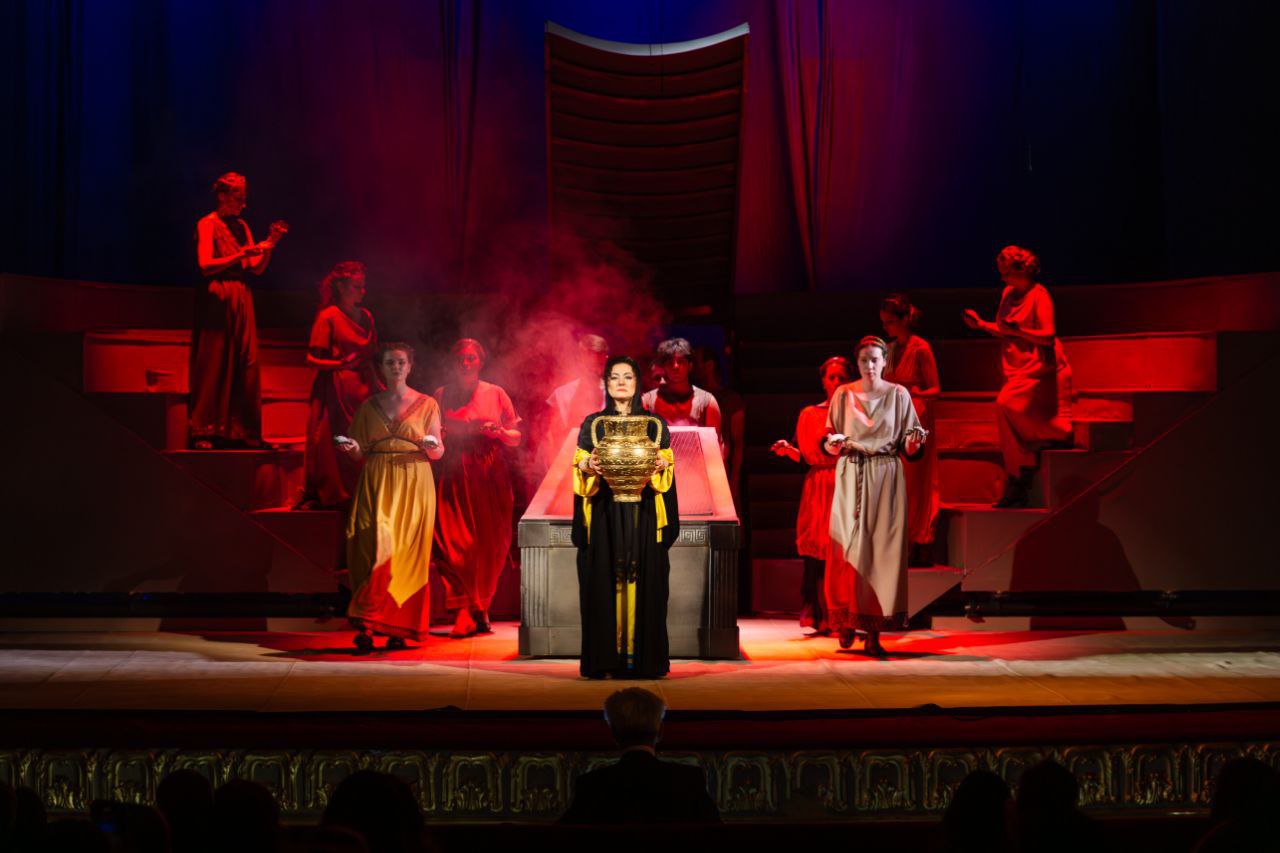
After the premiere, guests shared their impressions.
Nataliya Musiyenko, Vice-President of Europa Nostra, wrote on her Facebook page: "Love will prevail — tyrants will fall. This is the message of Dmitry Bortnyanskyy's opera Creonte. The fate of this opera is the fate of all of Europe, which continues to search for itself. That is why it resonates so strongly with the mission of Europa Nostra, which is a dedicated partner of this project. Bravo, Maestro Makarenko, bravo Chernivtsi, bravo Europe. Glory to Ukraine!"
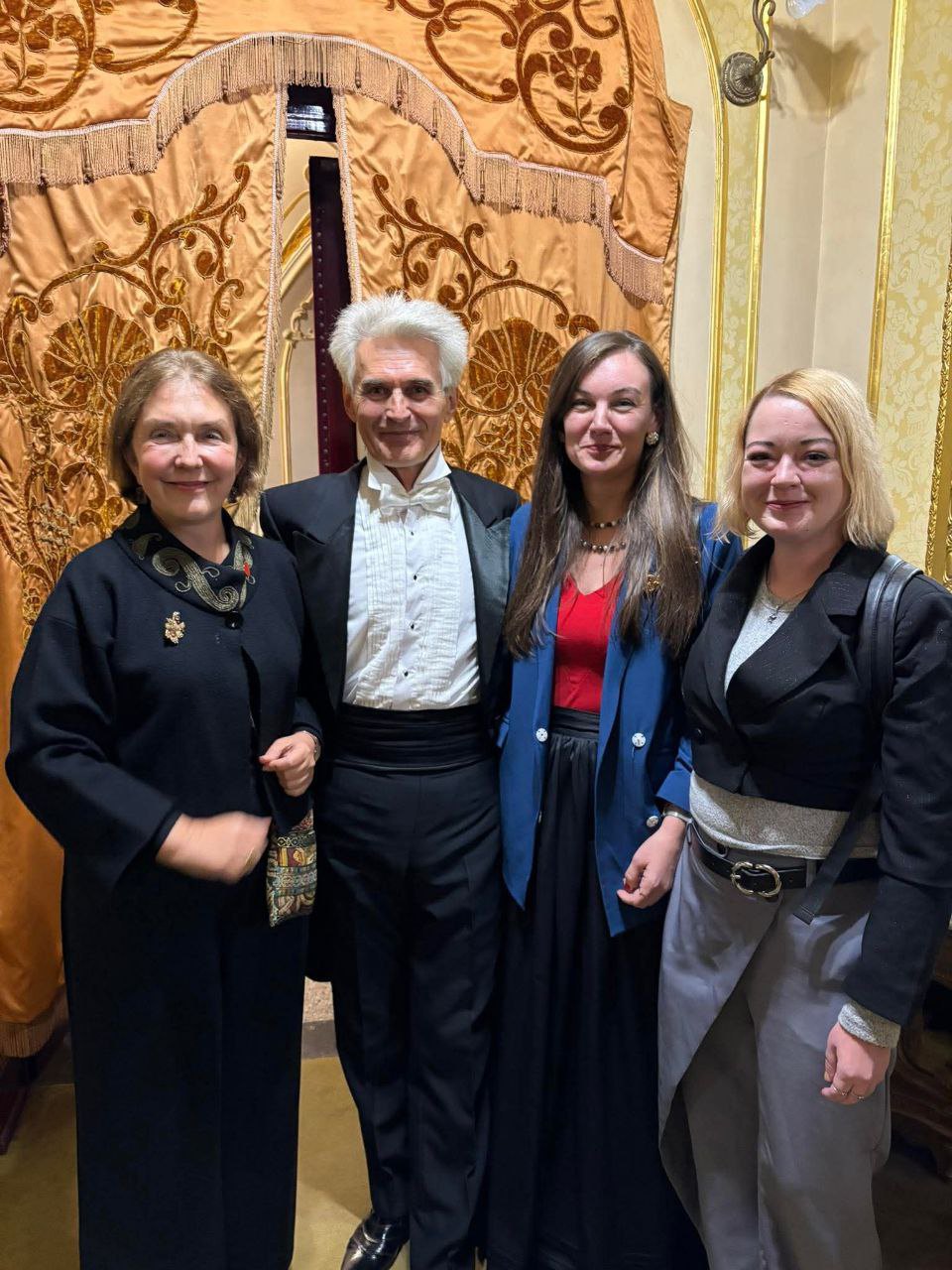
Lesya Voronyuk, a native of Chernivtsi, founder of Embroidery Day, and member of the Europa Nostra Council, believes that "the premiere of the opera Creonte is, without exaggeration, the main cultural event of the year in Ukraine. The opera has not only brought together fantastically professional cultural figures, it also opens up another deep layer of musical cultural identity and unity with European tradition for Ukrainians.
The premiere takes on even greater value in wartime and emphasises culture as a spiritual shield."
James Butterwick, British art dealer and partner in the Creonte project: "It was a magnificent spectacle: the libretto was wonderful, the music dramatic. It is a very light opera, although the theme — Creonte and Antigone — is tragic. But it was Bortnyanskyy who rewrote the finale, giving the opera and music a distinct Mozartian sound.
It was an incredible honour to be involved in this exceptional cultural event. The entire project was a huge triumph, which really needs — no, not needs, but must be repeated on European stages as soon as possible.”
According to James Butterwick, the staging of the opera Creon is very important, because few people in the world still associate Bortniansky with Ukraine. In his opinion, this opera will generate enormous interest in Ukrainian art among the global opera community.
